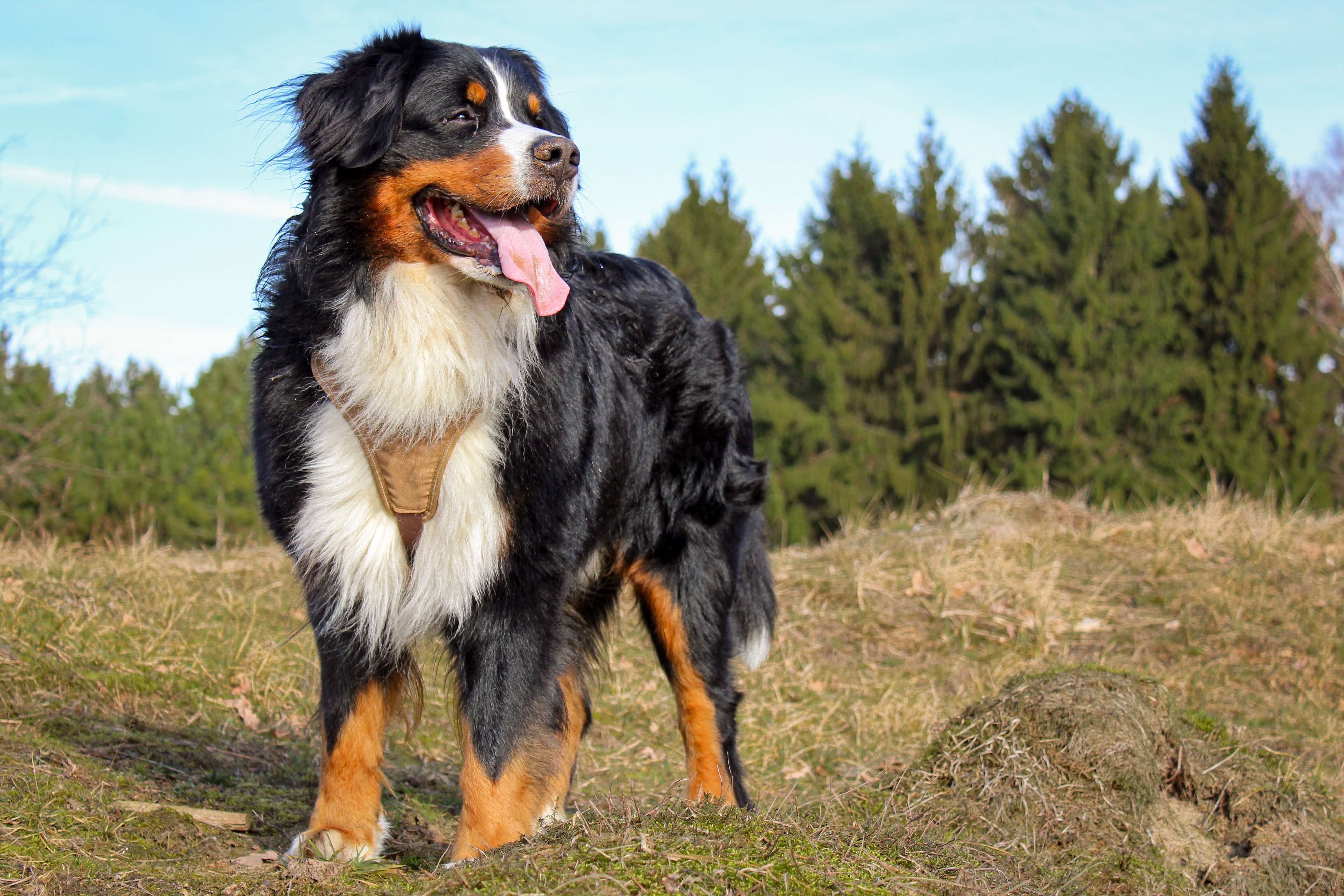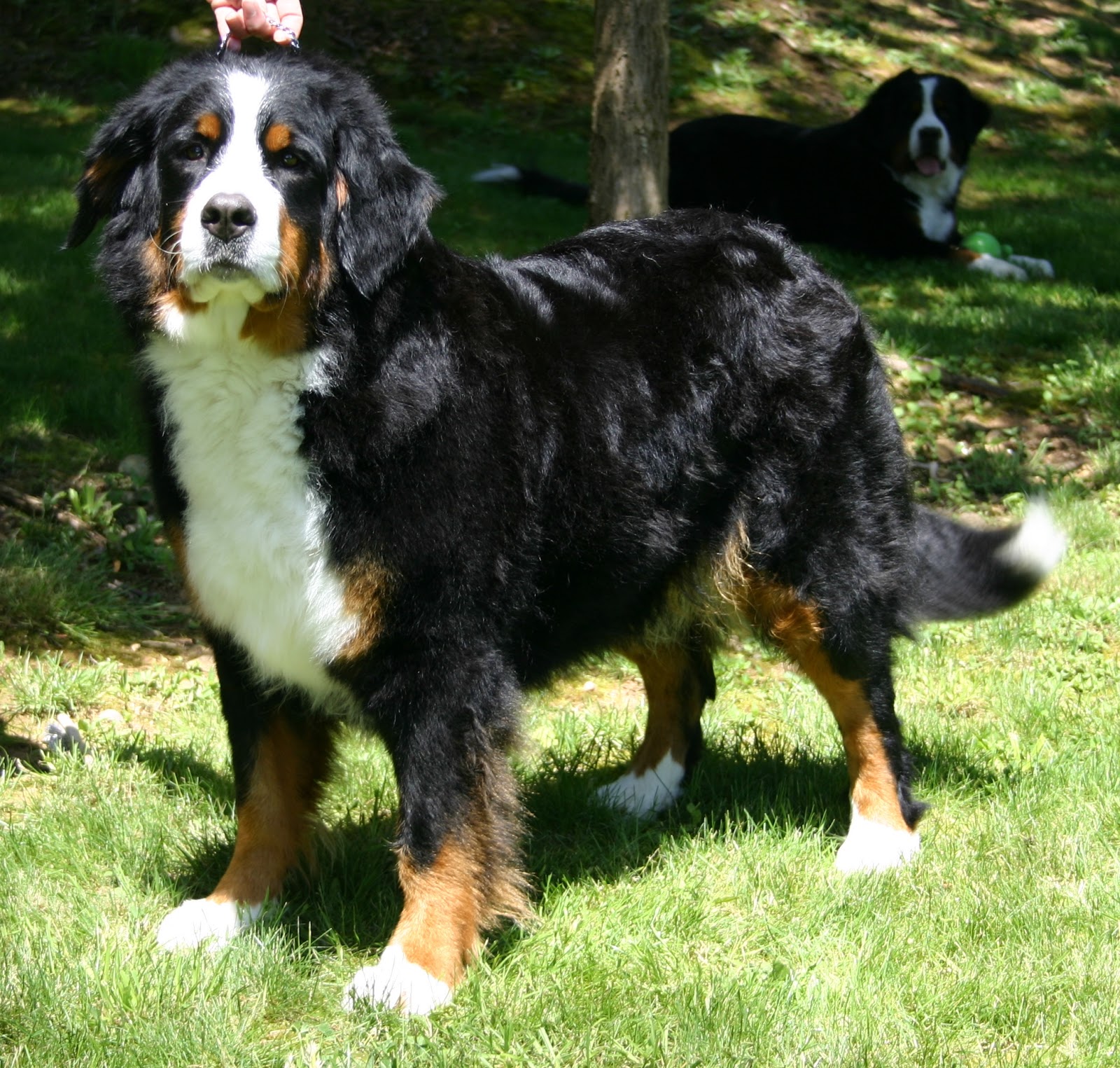Let’s talk about one of the cutest, most loyal, and downright heartwarming dog breeds out there—the Bernese Mountain Dog. If you’re looking for a furry friend who’s as loving as they are majestic, then this breed might just be your perfect match. Known for their striking tri-color coat and gentle demeanor, Bernese Mountain Dogs (or Berners, as they’re affectionately called) have captured the hearts of dog lovers worldwide. So, buckle up, because we’re diving deep into what makes these pups so special!
Now, I know what you’re thinking—why should I choose a Bernese Mountain Dog over all the other amazing breeds out there? Well, my friend, let me tell you, Berners aren’t just any old dogs. They’re like the golden retrievers of the Swiss Alps, but with a dash of sophistication and a whole lot of charm. These dogs were originally bred to work on farms, pulling carts and herding livestock, which means they’ve got a ton of stamina and a work ethic that’s unmatched. But don’t worry—they’re just as happy lounging on the couch with you as they are trekking through the mountains.
And let’s not forget their looks. Those big, soulful eyes, that fluffy tri-color coat, and that oh-so-cuddly demeanor? Pure magic. Whether you’re a first-time dog owner or a seasoned pro, the Bernese Mountain Dog could be the perfect addition to your family. So, without further ado, let’s dive into everything you need to know about this incredible breed.
Read also:Zach Edey The Rising Star Of College Basketball And Beyond
Table of Contents
- A Brief History of the Bernese Mountain Dog
- Physical Characteristics of the Bernese Mountain Dog
- Temperament and Personality Traits
- Caring for Your Bernese Mountain Dog
- Health Concerns and Lifespan
- Training Tips for Bernese Mountain Dogs
- Compatibility with Families and Other Pets
- Cost of Owning a Bernese Mountain Dog
- Famous Bernese Mountain Dogs
- Final Thoughts on the Bernese Mountain Dog
A Brief History of the Bernese Mountain Dog
Let’s rewind the clock a bit and take a trip back to the Swiss Alps, where the Bernese Mountain Dog first came into existence. These majestic pups were originally bred by farmers in the Bern region of Switzerland, hence the name "Bernese." Their primary job? Pulling carts and herding livestock. Yep, these dogs were the ultimate farmhands, and they did it with grace and efficiency.
Over time, the Bernese Mountain Dog became more than just a working dog—they became beloved family companions. In fact, their popularity soared in the early 20th century when they were officially recognized by the American Kennel Club (AKC) in 1937. Since then, Berners have been gracing homes across the globe with their loving presence.
How the Breed Evolved
Here’s the thing—Bernese Mountain Dogs haven’t changed much over the years. They’re still the same loyal, hardworking, and affectionate pups they’ve always been. However, as they transitioned from farm life to family life, breeders began focusing more on their temperament and appearance. Today, you’ll find Berners with those iconic tri-color coats and those heart-melting eyes that make them impossible not to love.
Physical Characteristics of the Bernese Mountain Dog
Alright, let’s talk about what makes the Bernese Mountain Dog so visually stunning. First off, they’re big. Like, really big. Adult Berners typically weigh between 70-115 pounds and stand about 23-28 inches tall at the shoulder. That’s a lot of dog, but trust me, you’ll want every inch of them in your life.
And then there’s that coat. Oh, that coat. Bernese Mountain Dogs have a thick, double-layered coat that’s perfect for keeping them warm in the cold Swiss Alps. Their fur is tri-colored—black, white, and rust—and it’s absolutely gorgeous. Just be prepared for some serious shedding, especially during the spring and fall.
Unique Features of the Bernese Mountain Dog
- Tri-color coat that’s as striking as it is functional
- Large, muscular build that’s perfect for pulling carts
- Those soulful eyes that will make you melt every single time
Temperament and Personality Traits
Now, let’s get to the good stuff—their personality. Bernese Mountain Dogs are known for being gentle giants. They’re affectionate, loyal, and incredibly loving. If you’re looking for a dog who will stick by your side through thick and thin, the Berner is your guy. They’re also super friendly, which makes them great with kids and other pets.
Read also:Kash Patel Confirmation The Inside Scoop Yoursquove Been Waiting For
That being said, Berners can be a bit clingy. They thrive on human companionship, so if you’re someone who spends a lot of time away from home, this might not be the breed for you. But if you’re home a lot and love having a furry friend by your side, you’ll be in doggy heaven.
What Makes Berners Unique?
One of the coolest things about Bernese Mountain Dogs is their ability to adapt to different situations. While they’re originally working dogs, they’ve made the transition to family life seamlessly. They’re just as happy playing fetch in the backyard as they are lounging on the couch with you. And let’s not forget their intelligence—they’re quick learners and love to please their humans.
Caring for Your Bernese Mountain Dog
So, you’ve decided to bring a Bernese Mountain Dog into your life. Congratulations! But before you do, there are a few things you need to know about caring for these gentle giants. First and foremost, they require a lot of grooming. That thick, double-layered coat needs regular brushing to keep it looking its best and to prevent matting.
Exercise is also important. While Berners aren’t exactly marathon runners, they still need daily walks and playtime to stay healthy and happy. And don’t forget about mental stimulation—they’re smart dogs who love to learn new tricks and play puzzle games.
Grooming Tips for Bernese Mountain Dogs
- Brush their coat at least 2-3 times a week
- Use a slicker brush to remove loose hair and prevent matting
- Bathe them every 2-3 months, or as needed
Health Concerns and Lifespan
Unfortunately, Bernese Mountain Dogs are prone to certain health issues, particularly as they age. One of the biggest concerns is hip and elbow dysplasia, which is common in large breeds. They’re also at risk for certain types of cancer, which is why regular vet check-ups are so important.
Despite these health challenges, Berners can live happy, healthy lives with proper care. On average, they live about 7-10 years, which is a bit shorter than some other breeds. But every moment with a Bernese Mountain Dog is worth it, trust me.
How to Keep Your Berner Healthy
- Feed them a high-quality diet
- Monitor their weight to prevent obesity
- Stay up-to-date on vaccinations and vet visits
Training Tips for Bernese Mountain Dogs
Training a Bernese Mountain Dog is a breeze—if you approach it the right way. These dogs are intelligent and eager to please, which makes them quick learners. However, they can also be a bit stubborn at times, so consistency is key.
Start training early and use positive reinforcement techniques, like treats and praise, to reward good behavior. And don’t forget about socialization—Berners love meeting new people and animals, so the more they’re exposed to, the better.
Common Training Challenges
One of the biggest challenges with Bernese Mountain Dogs is their size. They’re big dogs, so teaching them basic commands like "sit" and "stay" is crucial. You don’t want a 100-pound dog jumping on your guests!
Compatibility with Families and Other Pets
Bernese Mountain Dogs are the ultimate family dogs. They’re gentle, patient, and incredibly loving, which makes them great with kids. They’re also super friendly with other pets, including cats and smaller dogs. Just be prepared for some serious snuggling—they love nothing more than curling up with their human and furry friends.
That being said, Berners can be a bit possessive of their family members, so it’s important to socialize them early and often. This will help them feel more comfortable in different situations and around different people and animals.
Cost of Owning a Bernese Mountain Dog
Now, let’s talk about the financial side of things. Bernese Mountain Dogs aren’t cheap, and that’s not just because of their initial purchase price. They require a lot of food, grooming supplies, and vet care, which can add up over time.
The average cost of a Bernese Mountain Dog puppy is around $1,500-$3,000, depending on the breeder and location. And that’s just the beginning. You’ll also need to factor in the cost of food, grooming, and vet bills, which can easily run you several hundred dollars a month.
How to Budget for a Bernese Mountain Dog
- Set aside a monthly budget for food and grooming
- Invest in pet insurance to cover unexpected vet bills
- Shop around for high-quality, affordable supplies
Famous Bernese Mountain Dogs
Did you know that some Bernese Mountain Dogs have even made it into the spotlight? Yep, these pups are so lovable that they’ve even captured the hearts of celebrities. One of the most famous Berners is a dog named Bruno, who has over 100,000 followers on Instagram. And let’s not forget about the Bernese Mountain Dog who played "Duke" in the movie "Homeward Bound." Classic!
Why Are Berners So Popular?
It’s no surprise that Bernese Mountain Dogs are so popular. With their striking looks, gentle demeanor, and loving personalities, they’re the ultimate family companion. Whether you’re a movie star or a regular Joe, a Berner is sure to steal your heart.
Final Thoughts on the Bernese Mountain Dog
So, there you have it—everything you need to know about the Bernese Mountain Dog. From their rich history to their lovable personalities, these dogs are truly one of a kind. If you’re looking for a loyal, affectionate, and downright pawsome companion, the Berner might just be the perfect fit for you.
Remember, owning a Bernese Mountain Dog is a big responsibility, but it’s also one of the most rewarding experiences you’ll ever have. So, if you’re ready to welcome a gentle giant into your life, go for it. Your heart—and your home—will thank you.
Now, it’s your turn. Have you ever owned a Bernese Mountain Dog? What’s your favorite thing about them? Let me know in the comments below, and don’t forget to share this article with your fellow dog lovers!

